Dojo Meaning (updated 2023)
Share
Dojos, places of immersive learning and meditation, hold great significance in martial arts.
Derived from the Japanese term 'dōjō,' meaning 'place of the Way,' these training grounds foster personal development.
In a judo dojo, practitioners must adhere to etiquette rules, including punctuality, cleanliness, and respect through bowing. Traditional dojos, with their simplicity and wooden structures, create a unique atmosphere promoting focus and discipline.
With their emphasis on personal growth, dojos offer a transformative experience for those seeking to cultivate courage and mutual support.
Key Takeaways
- A dojo, derived from the Japanese word 'dōjō', is a place for immersive learning, experiential learning, or meditation, traditionally used for martial arts practice.
- The term 'dojo' originated from Buddhism and initially served as formal training places for various Japanese arts.
- In the context of judo, a dojo is a place where practitioners learn and practice the principles of maximum efficiency and mutual benefit.
- Practitioners in a judo dojo are expected to follow etiquette rules such as punctuality, cleanliness, hygiene, and bowing to maintain a respectful and disciplined atmosphere.
The Origins of the Dojo
Although the term 'dojo' is of Japanese origin, its roots can be traced back to Buddhism and the Sanskrit word 'Bodhimandala,' meaning 'place of edification' or 'place of awakening.'
The origins of the dojo can be found in the connection between Buddhism and the practice of martial arts. Initially, dojos were adjunct to temples and served as formal training places for various Japanese arts.
Over time, the dojo evolved and expanded its presence in other fields, such as meditation and software development. The Sanskrit influence is evident in the word 'dojo,' which translates to 'place of the Way.'
Today, the dojo plays a crucial role in meditation practices, providing a space for immersive learning and experiential learning. It continues to be a place of awakening and personal development, embodying the meaning of Bodhimandala.
The Significance of the Dojo in Judo
The dojo serves as a space for judo practitioners to cultivate their skills and deepen their understanding of the principles of the martial art, providing a supportive environment for growth and learning.
In judo dojos, physical training is a fundamental aspect, with practitioners engaging in various techniques, throws, and grappling exercises to develop their strength, flexibility, and overall physical fitness.
However, the significance of the dojo goes beyond physical training. It's also a place for mental development, where practitioners learn to focus their minds, develop discipline, and cultivate mental resilience.
Moreover, the dojo plays a crucial role in building courage, as practitioners face challenges and push their limits in a safe and supportive environment. This process of facing and overcoming obstacles in the dojo contributes to a sense of wellbeing and personal growth.
Respect and mutual support are foundational values in judo dojos, where practitioners learn to treat others with respect and offer support to their training partners. The dojo is also characterized by openness and inclusivity, welcoming individuals of all backgrounds and abilities to participate and learn.
Etiquette Rules in a Judo Dojo
Practitioners in a judo dojo are expected to follow several etiquette rules, including being punctual and maintaining cleanliness and hygiene.
Punctuality is of utmost importance in a judo dojo, as it demonstrates respect for the instructor and fellow practitioners.
Practitioners should also prioritize personal hygiene by ensuring that their judogi is clean and in good repair, and by keeping their fingernails and toenails trimmed to prevent injury to others.
Additionally, dojos often observe opening ceremonies, which may involve a series of bows and other rituals, creating a respectful and disciplined atmosphere.
Traditional dojos typically have a wooden structure with a sprung floor, made of oak, which provides a comfortable and safe surface for practicing judo.
Dojos can vary in size and location, but they all emphasize respect and openness, and many adopt a minimalist design to promote focus and concentration.
The Role of Punctuality in the Dojo
To ensure a respectful and disciplined atmosphere, punctuality plays a crucial role in the dojo, as practitioners are expected to arrive on time and ready for practice.
Punctuality isn't just about being on time; it encompasses various aspects that contribute to the overall effectiveness of training.
First and foremost, punctuality demonstrates good time management skills, allowing practitioners to make the most of their training sessions.
It also shows respect for the instructor, as being punctual acknowledges their time and effort in preparing the class.
Moreover, punctuality reflects discipline and commitment, as it requires practitioners to prioritize their training and adhere to a schedule. By arriving on time, practitioners create a focused environment for themselves and others, setting a positive example for everyone.
Additionally, being punctual maximizes training opportunities, as practitioners can fully participate in warm-ups and drills from the start. It also helps in building trust and camaraderie among fellow practitioners, as punctuality shows reliability and dedication.
Lastly, punctuality cultivates a strong work ethic, instilling the importance of being prompt and responsible both inside and outside the dojo.
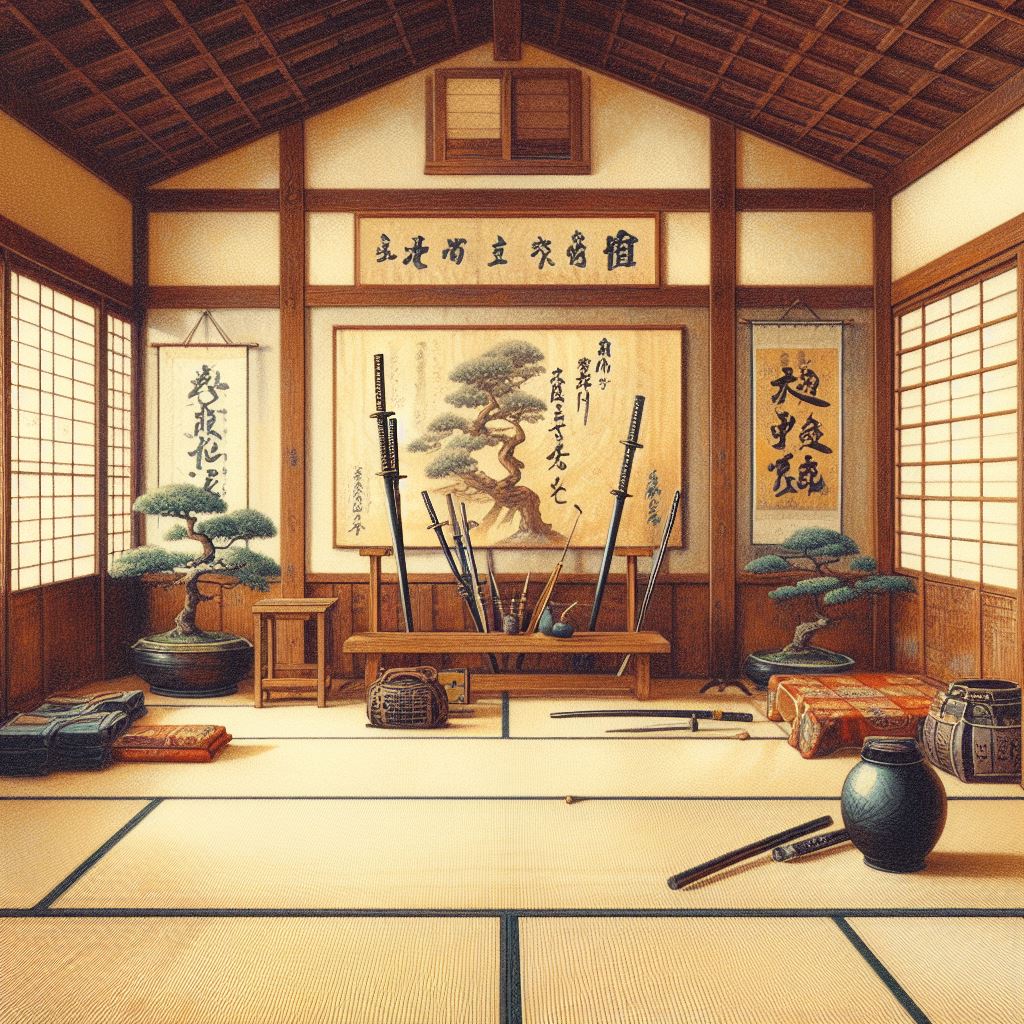
Maintaining Cleanliness and Hygiene in the Dojo
Maintaining proper cleanliness and hygiene is of utmost importance in a dojo to ensure a healthy and respectful environment for all.
Personal hygiene and cleanliness standards play a vital role in creating a healthy environment for practitioners.
It's essential for practitioners to maintain their judo uniforms, also known as judogi, by keeping them clean and in good repair.
This not only adheres to hygiene etiquette but also prevents injuries that can occur due to torn or dirty uniforms.
Nail care is another important aspect of maintaining cleanliness in the dojo.
Practitioners should ensure that their fingernails and toenails are trimmed to prevent accidental scratches or injuries to themselves or others.
The Importance of Greeting and Bowing in Judo
Greeting and bowing play a crucial role in fostering respect and camaraderie within the judo community.
These cultural traditions hold significant symbolic gestures of mutual respect and contribute to building discipline, creating a positive environment, and enhancing focus and concentration.
In judo, rituals and traditions are deeply ingrained in the practice, and bowing is an essential part of these customs.
When practitioners enter and leave the dojo, they bow as a sign of respect for the space and for their fellow practitioners.
Bowing also serves as a reminder of the mind-body connection in judo, emphasizing the importance of mindfulness and self-discipline.
Features of Traditional Dojos
Traditional dojos feature a Spartan design and simplicity, allowing practitioners to focus on their training and personal development. Traditional dojo architecture often consists of wooden structures, creating a warm and inviting atmosphere.
The dojo flooring materials, typically made of oak, provide a comfortable and safe surface for practicing martial arts.
Discipline is highly emphasized in the dojo, with practitioners expected to follow etiquette rules and show respect for their sensei, who plays a crucial role in guiding and instructing students.
Training in a traditional dojo offers numerous benefits, including physical fitness, self-defense skills, and mental discipline.
Meditation is often incorporated into the practice, helping students achieve mental clarity and focus.
Traditional dojos also provide training equipment such as punching bags, wooden weapons, and training dummies. Beyond physical training, the dojo holds cultural significance as a place of tradition and personal growth.
Spartan Design and Simplicity in the Dojo
With its minimalist design and lack of distractions, the dojo fosters a focused and immersive environment for practitioners to train and develop their skills.
The Spartan design and simplicity of the dojo have several key features that contribute to its effectiveness as a training environment:
-
Simplicity and focus: The minimalist aesthetics of the dojo create a distraction-free space where practitioners can fully concentrate on their training.
-
Practical design: The dojo is designed with functionality in mind, providing ample space for movement and training equipment.
-
Impact on training: The simplicity of the dojo's design allows practitioners to better understand and apply the principles of their martial art, enhancing their overall training experience.
-
Zen philosophy: The minimalist aesthetics of the dojo align with the Zen philosophy of simplicity and mindfulness, promoting a sense of calm and focus during training.
-
Aesthetic appeal: The clean and uncluttered design of the dojo not only enhances the training experience but also adds to its aesthetic appeal, creating a visually pleasing environment for practitioners.
Ceremonies and Formalities in the Dojo
Interestingly, ceremonies and formalities play a significant role in creating a respectful and disciplined atmosphere in the dojo.
Opening and closing rituals, along with other ceremonial practices, are essential components of dojo etiquette.
These rituals serve as a way to set the tone for training sessions and emphasize the importance of discipline and respect.
They also provide an opportunity for practitioners to demonstrate their respect for their instructors, training partners, and even spectators.
By following a code of conduct that includes bowing, proper greetings, and adherence to rules, practitioners build a disciplined mindset and foster a positive learning environment.
The role of ceremonies in martial arts training goes beyond mere tradition; they help instill values such as humility, perseverance, and self-control, which are vital for personal growth and development in the dojo.
The Unique Atmosphere of a Traditional Dojo
The wooden structure and sprung floor create a comfortable and safe environment in a traditional dojo. This unique atmosphere is further enhanced by several key elements:
-
Training intensity: Traditional dojos encourage a high level of training intensity, pushing practitioners to challenge their physical and mental limits to improve their skills and abilities.
-
Spiritual growth: Dojos provide a space for spiritual growth, allowing practitioners to connect with their inner selves and develop a deeper understanding of themselves and their place in the world.
-
Sense of community: Dojos foster a strong sense of community, with practitioners supporting and encouraging each other in their martial arts journey. This sense of camaraderie creates a supportive and motivating environment.
-
Mental focus: Dojos emphasize mental focus and concentration, teaching practitioners to clear their minds and stay present in the moment during training.
-
Physical discipline: Traditional dojos instill a sense of physical discipline, teaching practitioners the importance of proper technique, control, and physical conditioning.
Together, these elements create a unique learning environment in the dojo, where respect and humility are valued, and skill development is prioritized.
Frequently Asked Questions
What Is the History of the Term 'Dojo' and Its Origins?
The term 'dojo' has its origins in Buddhism and means 'place of the Way.' Initially, dojos were training places for various Japanese arts.
In the context of martial arts, a dojo is where practitioners learn and practice specific disciplines like judo, kendo, or aikido.
Are There Any Specific Rules or Etiquette That Practitioners Must Follow in a Judo Dojo?
Practitioners in a judo dojo must follow a dress code, properly use equipment, show respect for instructors, communicate with fellow practitioners, follow safety guidelines, prioritize warm-up exercises, promote inclusion and diversity, and adhere to a code of conduct during sparring sessions.
Why Is Punctuality Important in a Judo Dojo?
Punctuality is important in a judo dojo because it demonstrates time management, discipline, and respect.
It allows practitioners to focus, build trust, create a positive learning environment, and develop a strong work ethic, improving overall performance and technique while instilling responsibility and accountability.
How Should Practitioners Maintain Cleanliness and Hygiene in a Judo Dojo?
In maintaining cleanliness and hygiene in a judo dojo, practitioners follow strict protocols.
They ensure proper sanitization practices, adhere to personal hygiene guidelines, maintain equipment, use changing rooms appropriately, keep uniforms clean, and implement regular disinfection routines to create a clean and safe environment.
What Is the Significance of Greeting and Bowing in the Practice of Judo?
The significance of greeting and bowing in the practice of judo lies in their cultural significance and role in building discipline and focus.
These rituals and traditions foster mutual respect and understanding of judo etiquette. Proper etiquette is of utmost importance in the judo dojo.
Conclusion
In conclusion, the dojo holds great significance as a place of immersive learning and personal development in martial arts.
It serves as a training ground where practitioners not only improve their physical skills but also cultivate values such as courage, respect, and mutual support.
One interesting statistic is that in Japan, there are approximately 10,000 traditional dojos, highlighting the enduring popularity and importance of these spaces in martial arts culture.
Related Posts
-
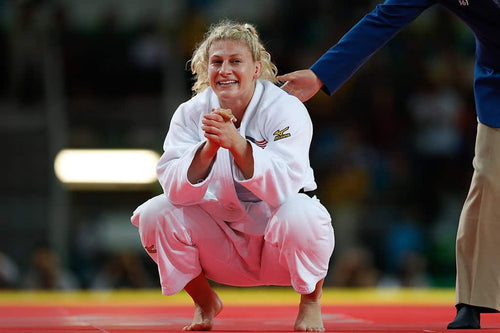
Kayla Harrison's Judo Journey - Judo Champion Turned MMA Powerhouse
Kayla Harrison is a groundbreaking American judoka who made history by becoming the first American woman to win an Ol...
-

Judo Atlanta - List of Judo Clubs in Atlanta area
In Atlanta, you can find excellent judo clubs such as Atlanta Judo Midtown and Black Ice Fitness where you can train...
-

Guram Tushishvili Disqualified - JUDO DRAMA with Teddy Riner
Guram Tushishvili Disqualified - Unsportsmanlike Behavior to French Judoka Teddy Riner Leads to Disqualification fro...
-

Yeldos Smetov - Judoka Profile
Yeldos Smetov, a name synonymous with excellence in judo, has carved out an illustrious career that stands as a beac...
-

Judo Olympics 2024 Results - Gold, Silver, and Bronze Medalists
The Judo Olympics 2024 Results are eagerly anticipated as the Paris Games approach, promising a thrilling display...
-

Judo For Self Defense - Here Is Why Is Judo Best For Self-Defense
Judo For Self Defense packs a punch. This martial art, born in Japan, turns attackers' strength against them. No nee...
-
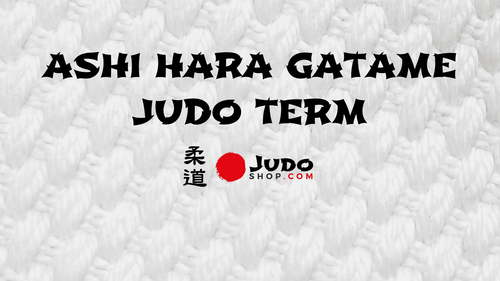
Ashi Hara Gatame - Judo Term Explained
Ashi Hara Gatame is a specialized technique in the martial art of judo, combining leg control, abdominal pressure, a...
-
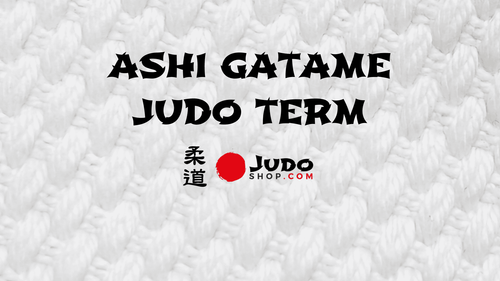
Ashi Gatame - Judo Term Explained
Ashi Gatame is a Judo technique referring to a kansetsu-waza (joint lock) where one uses their legs to immobilise ...
-

Judo Olympics 2024: Highlights, Athletes, and Schedules
Judo Olympics 2024 enthusiasts, mark your calendars! From July 27 to August 3, the Grand Palais Éphémère near the Eif...
-
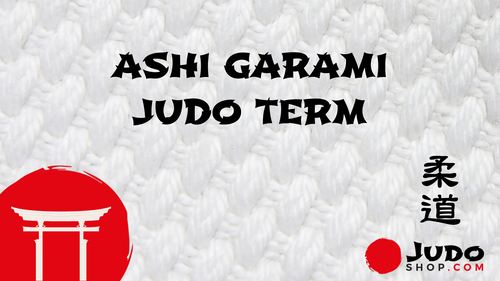
Ashi Garami - Judo Term Explained
What does "Ashi garami" mean in Judo? "Ashi garami" (足緘) is a Japanese term used in Judo that literally translates t...
-
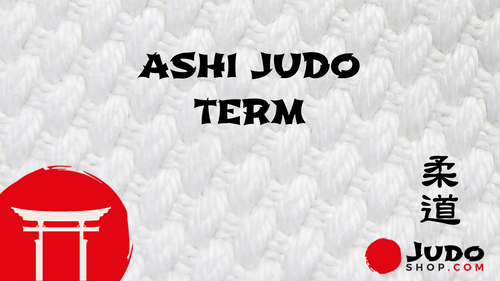
Ashi - Judo Term Explained
Ashi is term in Judo, referring to a leg or foot and category of judo techniques designed to unbalance and throw an ...
-
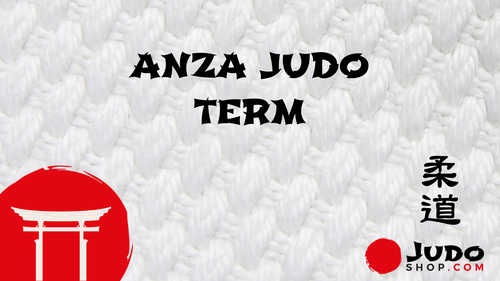
Anza - Judo Term Explained
The term Anza in Judo (安座) embodies a significant practice beyond merely sitting; it signals a deep respect and disc...
-
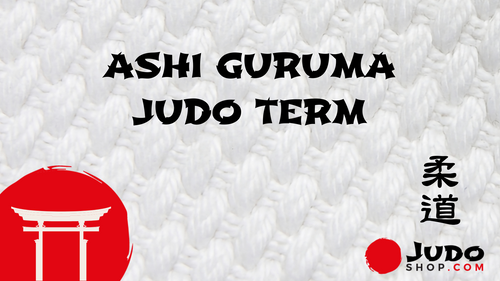
Ashi Guruma - Judo Term Explained
Ashi Guruma is a Judo term rooted in the martial art of Judo, which translates from Japanese as 'leg wheel'. This ju...
-
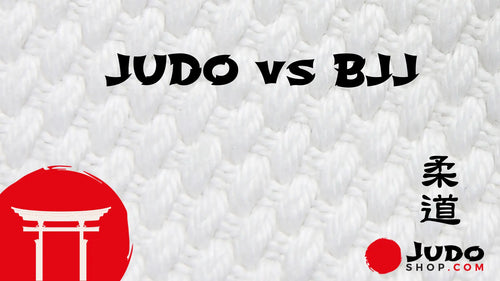
Judo vs BJJ? Of course Judo! Judo is better!
Welcome to Judoshop.com, the premier destination for judo enthusiasts worldwide. Here, we cater to beginners and vet...
-
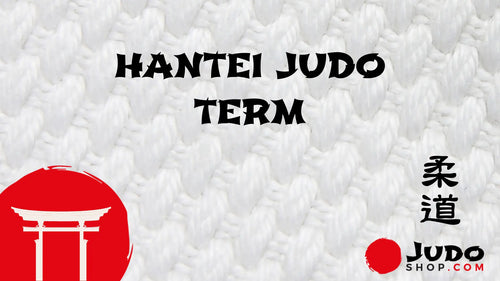
Hantei Judo Term Explanation
Contrary to popular belief, the term 'Hantei' in Judo is not just a simple decision-making process. It holds the p...
-

Hajime - Judo Term Explained
Ready to learn about Hajime in judo?It's all about using throws, pins, and joint locks on the mat. With the command ...
-
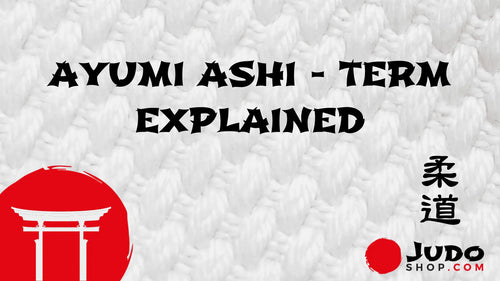
Ayumi Ashi - Judo Foot Work Explained
Are you ready to step into the world of Judo and master the art of Ayumi Ashi - 歩み足? This fundamental footwork techn...
-
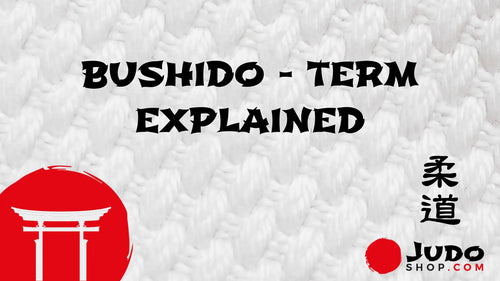
Bushido Explained
Bushido, the traditional code of ethics followed by samurai warriors in feudal Japan, is a subject that fascinates ...
-
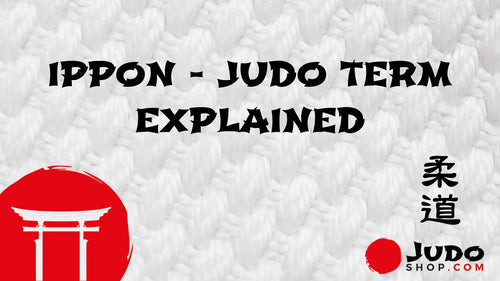
Ippon - Judo Term Explained
Imagine stepping onto the mat and feeling the adrenaline rush through your veins. In the world of judo, one ultimate...
-
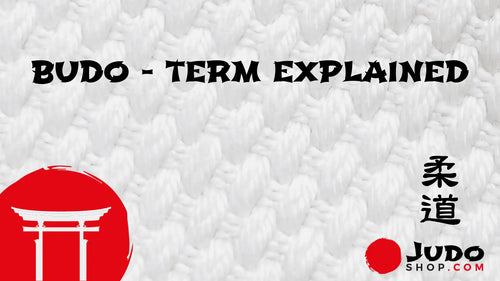
Budo - Term Explained
In a world full of chaos and conflict, one finds solace in the ancient art of budo. Contrary to popular belief, budo...
-
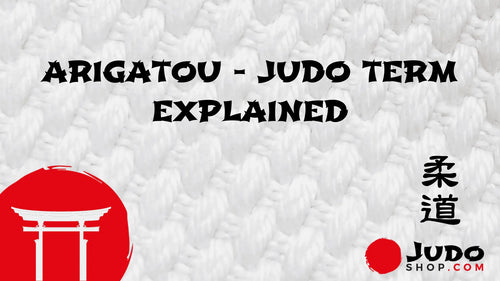
Arigatou - Judo Term Explained
Do you ever wonder about the true meaning behind the Japanese word 'Arigatou'? Well, wonder no more! 'Arigatou' is a...
-
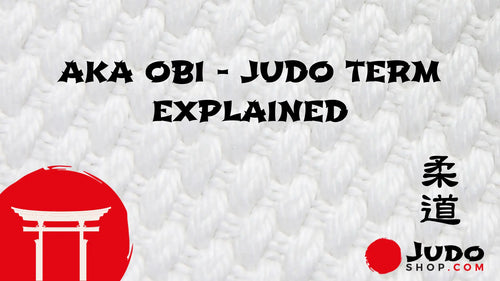
Aka Obi - Judo Term Explained
The aka obi, a red belt worn in Judo, is a prestigious symbol of expertise. Typically reserved for those holding a 9...
-

Why Are There 2 Bronze Medals In Judo
Judo is a unique sport that gives two bronze medals in each weight class. Many people wonder why this is done. To fi...
-
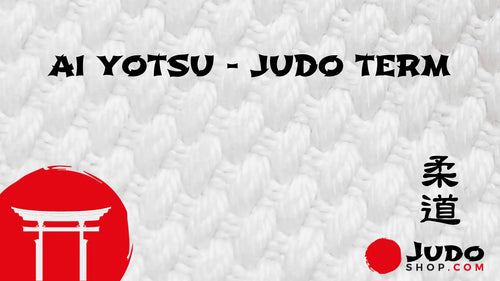
Ai Yotsu - Judo Term Explained
In the world of Judo, a term holds immense significance - Ai Yotsu. This grip, characterized by an intense and intim...
-
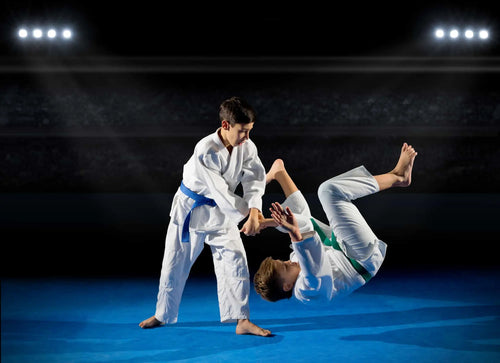
Is Judo Dangerous - Unveiling the Shocking Truths Behind this Ancient Martial Art
With its powerful throws and complex grappling techniques, one might wonder, "Is judo dangerous?" Yes, judo can po...
-

Is Judo The Toughest Sport - Unraveling the Grit and Grace of the Gentle Way
Judo, known as the Gentle Way, may seem like a paradoxical name for a sport, but don't let that fool you. While Ju...
-

Judo Terms - A Complete List of Judo Terms
Judo terms are the foundation of this martial art, and our collection is here to help both new and experienced judok...
-
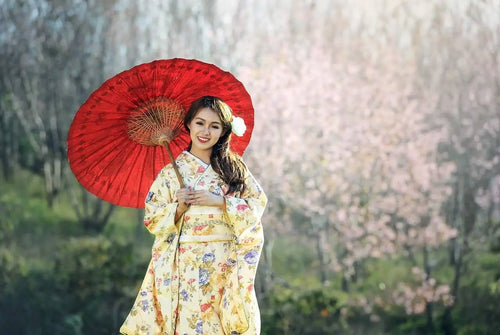
English to Japanese Kanji and Hiragana translations
Are you looking for an English to Japanese Kanji translation? Here you can find more than 30 examples of Kanji and ...





























